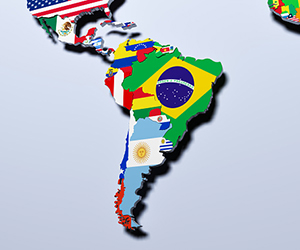In a commentary published in The Lancet Oncology, Vasquez et al presented results of a survey of pediatric oncologists/hematologists across Latin America, which showed an adverse early impact of the COVID-19 pandemic on pediatric cancer care.
Study Details
The study included a cross-sectional survey of pediatric oncologists/hematologists from April 12 to April 19, 2020, early in the course of the COVID-19 outbreak in Latin America. Surveys were completed by 453 individuals from public and private institutions in 20 countries, including 267 faculty members, 142 medical directors, and 44 residents.

Photo credit: Getty
Key Findings
The vast majority of respondents indicated that chemotherapy was being given to newly diagnosed patients (95%) and to those with active ongoing treatment (97%).
High proportions of respondents reported indefinite postponement or delay of surveillance consultations (89%), outpatient procedures (58%), cancer surgeries (45%), radiotherapy schedules (33%), outpatient consultations (26%), stem cell transplantation (73%), and palliative care (19%). The need to modify chemotherapy regimens due to drug shortage was reported by 36%.
On multivariate analysis, type of oncology hospital, number of pediatric oncologists/hematologists in a center, travel restrictions, COVID-19 incidence and fatality rates, and national health-care expenditure were independently associated with discontinuation or modification of facets of care and treatment. Facility funding, respondent’s position, and rate of COVID-19 testing were not independently associated with discontinuation or modification of care.
A decrease in pediatric oncology/hematology staff due to COVID-19 infection or quarantine was reported by 59% of respondents. No provision of telemedicine consultations was reported by 50%, although many respondents reported use of nonprofessional social media channels.
Shortages of blood products were reported by 79% of respondents, with respondents in countries with travel restrictions, high COVID-19 incidence rates, and healthcare expenditure < 7% of gross domestic product being more likely to report shortages.
Overall, 88% of respondents reported the belief that the COVID-19 pandemic will affect the prognosis of children with cancer treated at their institution. Respondents from countries with the highest health-care expenditures and lowest COVID-19 incidence and case fatality rates were more likely to report the belief that the pandemic would not affect outcomes.
Almost all respondents reported that their institutions were implementing social distancing measures, suspending activities of nonessential personnel and students, reorganizing teams to reduce exposure, and implementing educational policies reflecting available international recommendations on infection control. A substantial proportion expressed concerns over lack of governance of health-care systems overwhelmed by COVID-19, limited availability of personal protective equipment, issues in shipment and processing of pathology samples, and delays in diagnosis in new cases of cancer (particularly in countries in which treatment is centralized).
The authors concluded, “Our data suggest that even in this early epidemiological phase where health-care systems have not been substantially affected in Latin America, COVID-19 has already affected the care of children with cancer. In addition to the potential risk of severe disease by COVID-19 in these patients, prognosis could be negatively affected because of alterations to pediatric oncology management. As the pandemic evolves and the burden on health-care systems increases, these disruptions might be even more severe if preventive actions are not taken.”
Guillermo Chantada, MD, of Hospital JP Garrahan, National Scientific and Technical Research Council, Buenos Aires, is the corresponding author for The Lancet Oncology article.
Disclosure: For full disclosures of the study authors, visit thelancet.com.

